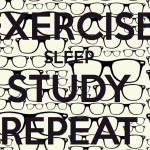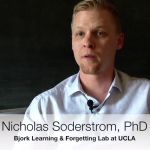Advice For Teachers: How To Make Daily Quizzes Work
This article was originally published in Psychology Today on Nate Kornell’s blog, Everybody is Stupid Except You
Learners should be tested as they learn. I believe that. But I don’t typically give daily, or even frequent, quizzes in my classes. Why? Cowardice and hypocrisy, basically: The one time I did daily quizzes the students didn’t like it. But I did it again this semester and it was good. So in this blog, a few reflections on…
What to do, and what NOT to do, if you’re thinking of giving daily quizzes.
I’m assuming you’re teaching a college course, but whatever the level, there are a lot of decisions to make.
- Should they be based on the reading, the lecture, or both?
- Should they occur every day?
- Should they be graded? How much should they affect course grades?
- Should students be allowed to skip quizzes?
- What kind of questions should you ask?
Here are my answers.
My quizzes were based on the reading. Why? My main goal was to give the students an incentive to read the articles I assigned. And read them closely. What not to do: give quizzes on the reading but don’t grade them; this makes the reading seem unimportant and the quiz feels like a waste of time. If you’re not going to grade the quizzes, they should be about the lecture and they should come at the end.
I gave a quiz almost every day. When I gave students a day off, I didn’t let them know until shortly before class started. Why? I wanted them to be on the hook every day. What not to do: Force quizzes even when you don’t think one’s appropriate, or signal to the students that the reading isn’t important by telling them they won’t be quizzed.
My quizzes were graded. They were worth 15% of the grade, which translated into about 1% of the grade for each quiz. Why? I decided to grade the quizzes because grades are a strong incentive to read. What not to do: In my opinion, making the quizzes a big part of the grade is a mistake because it can be stressful to have a big incentive at stake every day, and even one bad question can set off a firestorm of student grumpiness.
I let students skip three quizzes. I made them tell me before the quiz started whether they were going to skip it. Why? For one thing, sometimes people have to miss class. For another, sometimes students have a nightmare week in other classes and I wanted to respect their decision making, and treat them like adults, by allowing them to triage my class when absolutely necessary. What not to do: Let the students decide to skip quizzes after they see the quiz questions. They should know that they need to be totally ready if they’re going to take the quiz; giving them an escape hatch will make them less prepared.
Writing good questions
And finally, the most important thing I learned from past experience: Write good questions! What’s a good question? It depends on why you’re asking it.
My goal was to incentivize careful, thorough reading, so I asked simple questions that could be answered correctly if students did the reading carefully. They weren’t necessarily easy questions, but they weren’t confusing. My questions were factual. They didn’t require the students to make inferences or go beyond what they had read. Most of my questions were true/false. A few were multiple choice. These simple formats removed ambiguity and insured that one answer was definitely right.
What not to do: Do not write questions that the students would know if they did not do the reading carefully. This is hard sometimes, but crucial. Do not write questions that are in any way tricky. If there is a universe with trick questions on one side, I tried to write questions on the other side. Tricky questions add noise to your ability to tell whether the students know the information. Do not use “choose the best answer” type of questions, where more than one might be right, unless you can be sure that one interpretation is definitely correct.
Why do I think good questions are simple and factual? For three reasons. First, simple question served my goal: They gave the students a good reason to do the reading carefully. Second, I didn’t neglect the part where they make inferences and go beyond the reading, but that happened during the discussion, not on the quiz. Third, students really hate unfair questions. Who can blame them? Keeping things clear and factual helped me avoid accidentally writing unfair or confusing questions.
Did it work?
The daily quizzes worked even better than I had hoped. My students unanimously approved of the quizzing. Moreover, regardless of student opinion, it accomplished my goals. The students clearly learned a lot from the readings (although I have no objective evidence for this claim). Also, they were knowledgeable during discussions because they had read the material closely, so the discussions were better than usual.
Furthermore, with the quiz out of the way, the students did not spend the rest of the class trying to write everything down in a frenzy of note taking so that they could study later. This wasn’t because of the daily quizzing, it was because there was no midterm or final. I hadn’t anticipated this difference, but it was great. During class they focused on the content of the discussion without distractions.
Interestingly, most of them took occasional notes anyway. When I asked why, they said, basically, taking notes helps them learn. I was pleased to see that they were intrinsically motivated to learn the material even if, at that point, it wouldn’t affect their grades.
So that’s what I think. If you write good questions, daily quizzes can be effective in discussion-based classes. I don’t think what I’ve described is the only way it can work. And I don’t actually think the real value came from taking the quizzes; I think it was all about changing the way students prepared for class. But I don’t care all that much as long as it works.
© Nate Kornell

































Leave a Reply
You must be logged in to post a comment.